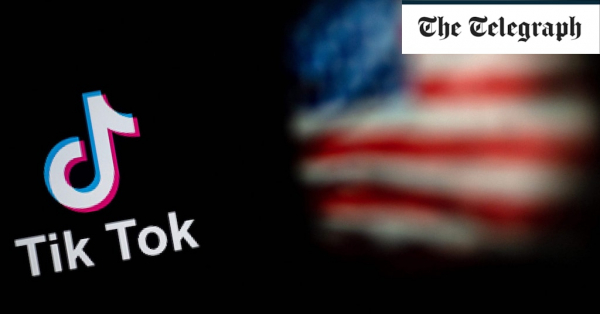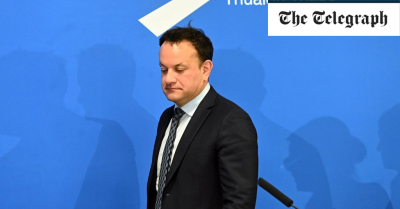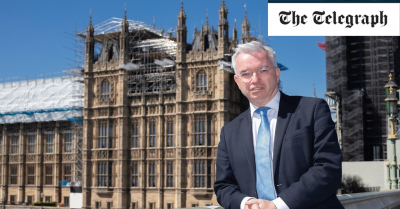Harvesting Consequences: China Faces the Fruits of its Actions

China's TikTok Dilemma: Reaping What's Sown in Global Markets
Amidst a landscape rife with diplomatic doublespeak, China's official stance on the forced sale of TikTok reached a crescendo of hypocrisy. Criticizing the violation of free competition while maintaining a tight grip on its own digital sphere, China's outcry echoed hollow in the global arena. The U.S., rightfully skeptical, considers demanding the sale as a corrective measure. If enacted, it promises to either compel China to liberalize its markets or accept the inevitable constraints on its multinationals—a welcome departure from the current rigged status quo.
The potential sale of TikTok, valued at tens of billions, signifies more than just a transaction; it heralds a seismic shift in the social media landscape. With over 1.7 billion users worldwide, Byte Dance's creation stands as the preeminent internet phenomenon of the past decade. However, recent decisions by the U.S. House of Representatives, citing national security concerns, mandate its separation from Chinese control, paving the way for a colossal divestment.
As potential suitors jostle for control, including rumored involvement from former Treasury Secretary Steve Mnuchin, the ramifications extend far beyond mere ownership. The involvement of tech titans like Amazon, Apple, or Meta promises to redefine the contours of the global web industry, with TikTok's American-approved steward poised to ascend to the ranks of digital giants.
Yet, amidst the clamor, China's government decries perceived bullying tactics, warning of repercussions for the United States. However, this indignant retort rings hollow in the face of its own market restrictions and censorship practices. As the saga unfolds, it underscores the complex interplay between geopolitics and commerce, leaving observers to ponder whether China will heed the winds of change or face the consequences of its insular policies on the global stage.
The Irony of China's Accusations in Global Competition
While China raises objections to perceived unfair competition, its own track record belies such claims. The irony is palpable in a nation where major Western platforms like X (formerly Twitter), YouTube, Facebook, WhatsApp, Google, and Instagram remain inaccessible due to state-enforced restrictions. If China truly seeks to address bullying behavior and uphold economic order, dismantling its digital firewalls would be a logical first step, paving the way for a more equitable global marketplace.
Beyond rhetoric, tangible actions speak volumes. Embracing platforms like Mastercard and Visa, opening avenues for global banks, and welcoming Western media and streaming services would demonstrate genuine commitment to fair competition. Mere denunciations pale in comparison to substantive reforms that foster openness and inclusivity.
The U.S.'s move to compel restructuring or divestment of TikTok may mark a tipping point, yet it's unlikely to conclude the debate. As China's corporate giants venture into Western markets, they must brace for similar scrutiny and regulations. Companies like Shein and Temu, flourishing abroad, must ensure reciprocal access for Western counterparts within China's borders.
The automotive sector presents a microcosm of this dilemma, with BYD leading the charge in electric vehicles while foreign competitors face barriers to entry. Similarly, the advent of Comac's C919 aircraft poses a potential threat to Boeing and Airbus, raising questions of fairness and reciprocity in market access.
China's prowess across industries is undeniable, but its protectionist policies have fostered an uneven playing field. As debates on global trade intensify, the imperative for fair competition transcends borders. True progress lies not in rhetoric but in concrete actions that level the playing field and foster a truly competitive marketplace for all.
China's Crossroads: The TikTok Dilemma and the Quest for Market Openness
The TikTok saga heralds a watershed moment for China, compelling a long-overdue reckoning with its stance on global trade and market openness. The decision facing China is clear: does it adhere to the principles of free and open markets, as dictated by World Trade Organization rules, or persist in shielding its domestic industries from competition?
For years, China has safeguarded its markets while rapidly bolstering its industrial prowess, enjoying relative impunity as a supplier to Western counterparts. However, as its conglomerates aggressively expand into international markets, this protectionist stance becomes untenable. The status quo cannot endure; China must choose between opening its markets to fair competition across sectors—starting with the internet and extending to finance, media, and pharmaceuticals—or confronting the reality of restricted access to Western markets, potentially leading to divestment or punitive trade measures.
In either scenario, the outcome promises a healthier and fairer global economy than the prevailing one-sided dynamic. The Chinese government faces a critical juncture in the coming months, particularly if TikTok legislation materializes. Farcical condemnations of unfairness will no longer suffice; concrete action is imperative.
The TikTok decision serves as a catalyst for China to redefine its role in the global economic landscape. Embracing openness and reciprocity holds the key to fostering a more equitable and sustainable future for all stakeholders involved. The time for China to make its choice is now, as the repercussions of inaction reverberate far beyond the realm of social media platforms.
In conclusion, the TikTok dilemma encapsulates a pivotal moment for China, demanding a decisive choice regarding its approach to global trade and market dynamics. Whether China opts for market openness or persists in protectionist measures will reverberate across industries and shape the trajectory of international commerce. As the world watches, the Chinese government faces a critical juncture, necessitating a departure from rhetoric towards tangible actions that foster fairness and reciprocity. The outcome of this deliberation holds profound implications for the global economy, signaling a shift towards a more balanced and equitable economic order. Ultimately, the TikTok decision underscores the imperative for China to embrace openness and collaboration, transcending narrow interests for the collective benefit of all stakeholders in the global marketplace.






